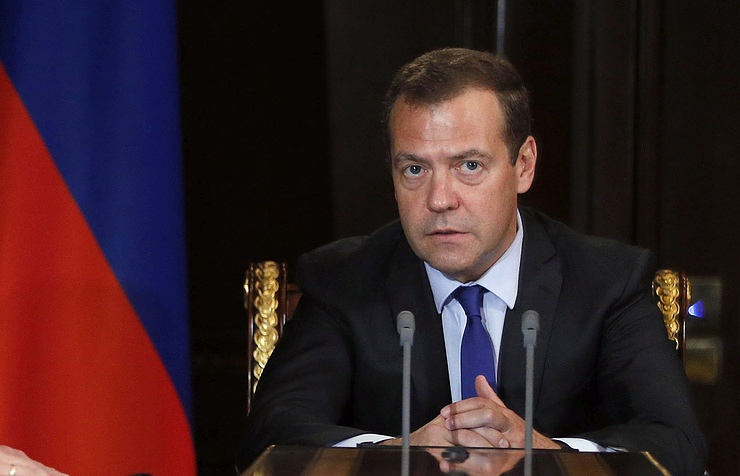The draft budget for 2017-2019 assumes sanctions against Russia will continue until 2019 year-end and the oil price will be low, Prime Minister Dmitry Medvedev has announced.
“We assume the conservative estimate of the economic situation on global markets and fairly low oil prices – within $40 per barrel of Urals throughout all the three years, and that sanctions may remain until the end of the forecast period,” the prime minister said.
Russia’s government will consider the draft budget for 2017-2019 on October 13, Medvedev said at the meeting of the governmental commission on budget planning, adding that the draft will be submitted to the State Duma before October 28:
“Today’s meeting of the commission on budget planning is the last one before the budget is submitted to the government <…> On October 13, we’re bringing the whole budget package up for government’s consideration while before October 28 the draft should be submitted to the State Duma.”
The Russian Finance Ministry forecasts consolidated budget deficit to be 4% of GDP in 2016.
“Structural deficit of the consolidated budget will be about 4.0% GDP as of 2016 year-end. Consolidated budget expenditures will reach 37% of GDP according to results of 2015-2016,” according to the Finance Ministry.
Draft budget policy guidelines also predicts more challenging environment for Russia’s international loans:
“[The monetary policy – TASS] is expected to be normalized actually everywhere in 2017-2019, probably except the Bank of Japan. This will gradually change global investors’ assessments of risks and returns of investments into financial assets in favor of developing economies. Accordingly, conditions of international borrowing are expected to become progressively tougher for emerging economies, including Russia,” the document reads.
Oil price and budget risks
Any oil prices drop may result in crisis consequences for Russia similar to events in 2014-2015 if a decision is made to escalate budget expenditures against the background of high oil prices, the Finance Ministry warned:
“Any subsequent decline of oil prices will probably lead to crisis consequences similar to events of 2014-2015,” the document says.
Such developments are possible if a decision is taken to boost budget expenditures in case of realized oil prices growth scenario, the Finance Ministry adds.
Scenario based on $40-50 per barrel oil prices is the most probable for the Russian economy over the long term, according to the draft budget policy guidelines:
“The stabilization of oil prices over the long term at the level of $40-50 per barrel in real terms is seen as a most probable scenario,”
New attractive tax system
The Russian government should ensure stability of the tax system and its high attractiveness for business:
“As part of our tax policy we should ensure stability of the tax system and to raise its attractiveness for investors,” Medvedev said.
For that reason the government previously refused to accept a number of proposals, “which would change this stability,” the prime minister has added.
The Prime Minister said that as part of the customs and tariff policy the government should continue to create favorable conditions for the substitution of imports, to boost non-oil exports and to develop the production technological cooperation, especially in the framework of the Eurasian Economic Union.
Medvedev also said that the government in its work will focus on the priorities that have been chosen in recent years.
“This is one of the basic principles of our fiscal policy in the near future. The resources will be granted first of all to those projects that give the highest return for the citizens and the economy as a whole. We have to understand exactly what result we get when we place money in specific projects,” the premier emphasized.
Medvedev stressed that it is crucial to “strengthen all those positive changes that the government has made this year to expand the potential of the economy in rather difficult conditions.”
